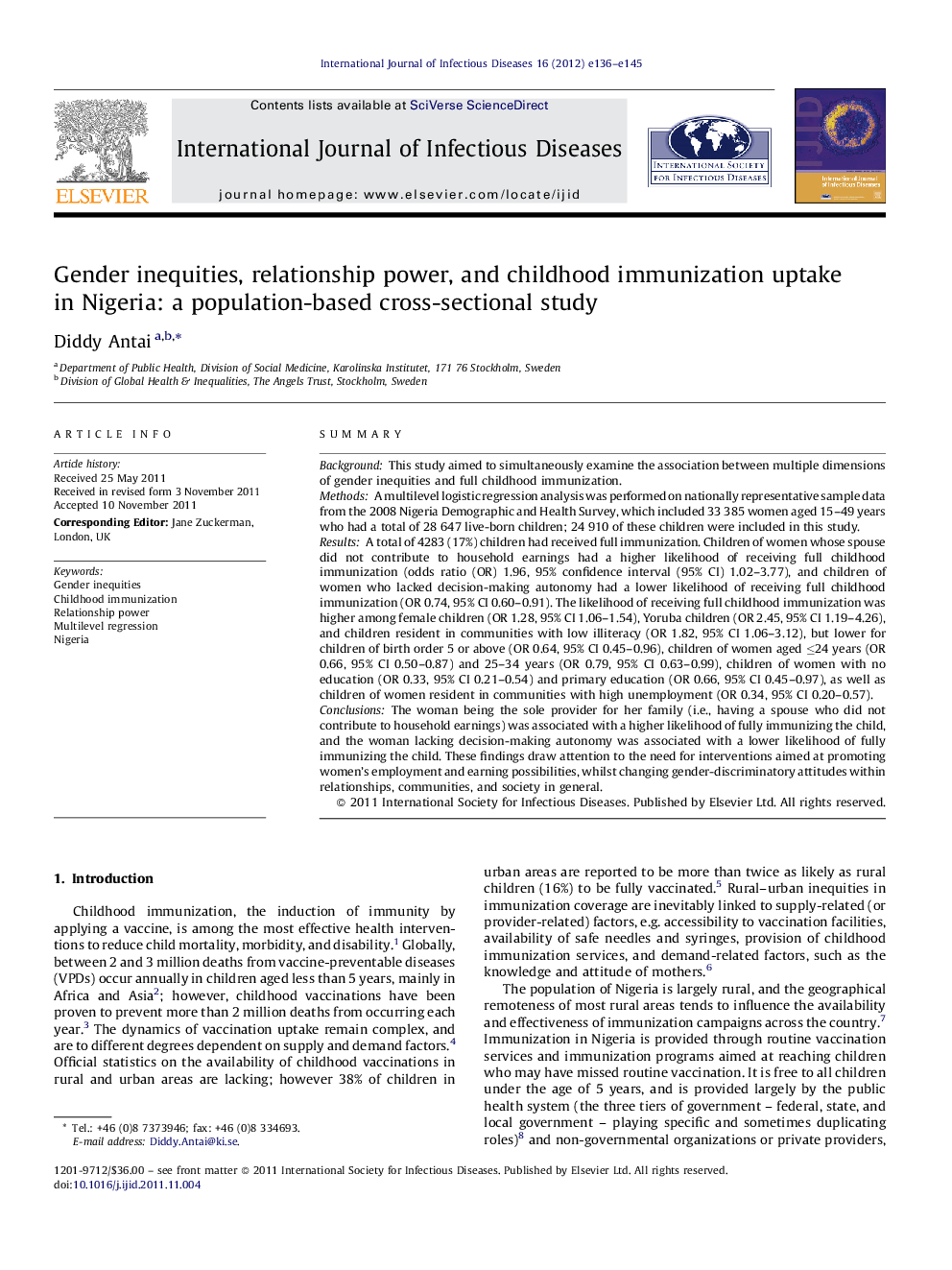| کد مقاله | کد نشریه | سال انتشار | مقاله انگلیسی | نسخه تمام متن |
|---|---|---|---|---|
| 3363206 | 1592101 | 2012 | 10 صفحه PDF | دانلود رایگان |

SummaryBackgroundThis study aimed to simultaneously examine the association between multiple dimensions of gender inequities and full childhood immunization.MethodsA multilevel logistic regression analysis was performed on nationally representative sample data from the 2008 Nigeria Demographic and Health Survey, which included 33 385 women aged 15–49 years who had a total of 28 647 live-born children; 24 910 of these children were included in this study.ResultsA total of 4283 (17%) children had received full immunization. Children of women whose spouse did not contribute to household earnings had a higher likelihood of receiving full childhood immunization (odds ratio (OR) 1.96, 95% confidence interval (95% CI) 1.02–3.77), and children of women who lacked decision-making autonomy had a lower likelihood of receiving full childhood immunization (OR 0.74, 95% CI 0.60–0.91). The likelihood of receiving full childhood immunization was higher among female children (OR 1.28, 95% CI 1.06–1.54), Yoruba children (OR 2.45, 95% CI 1.19–4.26), and children resident in communities with low illiteracy (OR 1.82, 95% CI 1.06–3.12), but lower for children of birth order 5 or above (OR 0.64, 95% CI 0.45–0.96), children of women aged ≤24 years (OR 0.66, 95% CI 0.50–0.87) and 25–34 years (OR 0.79, 95% CI 0.63–0.99), children of women with no education (OR 0.33, 95% CI 0.21–0.54) and primary education (OR 0.66, 95% CI 0.45–0.97), as well as children of women resident in communities with high unemployment (OR 0.34, 95% CI 0.20–0.57).ConclusionsThe woman being the sole provider for her family (i.e., having a spouse who did not contribute to household earnings) was associated with a higher likelihood of fully immunizing the child, and the woman lacking decision-making autonomy was associated with a lower likelihood of fully immunizing the child. These findings draw attention to the need for interventions aimed at promoting women's employment and earning possibilities, whilst changing gender-discriminatory attitudes within relationships, communities, and society in general.
Journal: International Journal of Infectious Diseases - Volume 16, Issue 2, February 2012, Pages e136–e145